Introduction to Moscow State Linguistic University
Moscow State Linguistic University is the largest and oldest institution of higher learning in Russia specializing in linguistics and foreign languages. It is a classical university in the field of humanities and a scientific and cultural center of an uninterrupted education system.
Overview
Student size: There are about 10,000 students and postgraduates.
Faculty: More than 75% of the teaching staff have advanced degrees, and there are many experts who are well-known in Russia and even in the world.
History and establishment time
Its history can be traced back to 1804, when it was the Moscow Imperial Commercial School founded by the senior ukaz of Emperor Alexander I. In 1930, the Moscow New Language Institute was re-established on the original site. After several name changes, it was determined to be the current name in 1990.
School Strength
Teaching achievements: Over 200 years, tens of thousands of high-level experts have been trained. Graduates have a high influence internationally. Many of them have become Russian and foreign language experts and serve as important translators and communication assistants.
Scientific research strength: The school publishes an average of 200 papers each year. The research monographs, manuals and textbooks of Russian language schools, colleges and universities, scholars have developed unique teaching and research tools and won awards at international exhibitions at home and abroad.
International Cooperation: Established cooperative relations with 94 leading universities in 35 countries, is the language cooperation base of the Shanghai Cooperation Organization and an important member of the Shanghai Cooperation Organization Humanities University Alliance, and also cooperates with organizations such as the United Nations.
Institutional Nature
Public.
Educational Philosophy
Focus on cultivating students' solid language foundation and cross-cultural communication skills. Through systematic language learning and practice, students can master multiple languages proficiently and have the ability to communicate and communicate effectively in different cultural backgrounds, and cultivate professional talents in the fields of language education, translation, international relations, etc.
Key laboratories and disciplines
Key laboratories: No clear key laboratories were found, but the school has developed unique teaching and research tools such as Lingua and Glossa.
Key disciplines: The school is strong in professional fields such as theoretical and historical linguistics, language learning theory, translation studies, and East European studies, and also has a high reputation in the humanities such as linguistics, cultural studies, and international relations.
Faculty
It has the School of English Language, the Institute of Law, Economics and Information Management, the School of Humanities and Applied Sciences, the School of Translation, the German Department, the French Department, the School of Distance Education, the School of Military Education, the School of Foreign Citizens Education, the School of Lecturer Training, the Institute of International Relations and Social Politics, etc.
Ranking
In the QS Emerging Europe and Central Asia ranking, it ranks 301-350.
Expenses
No clear tuition standards were found, but the school has a preparatory course, and the preparatory languages are English and Russian.
Campus
The school is located in the center of Moscow. The building where its main campus is located is of historical significance. The school moved here in 1806, and the 5th Frunze Militia Division was established here in 1941. The campus is surrounded by convenient transportation and rich cultural and artistic resources, making it easy for students to experience Russian culture and history.
-

Peter the Great St.Petersburg Polytechnic University
-
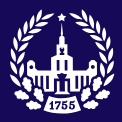
Moscow State University M. V. Lomonosov
-
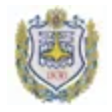
Bauman Moscow State Technical University
-
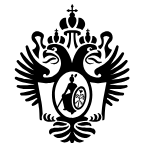
St. Petersburg State University
-

Tomsk State University
-

Peoples' Friendship University of Russia
-

Don State Technical University
-
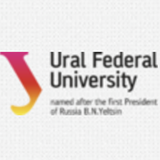
Ural Federal University
-

Moscow Institute of Physics and Technology
-
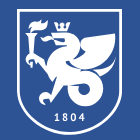
Kazan Federal University
-

Mesoamerican University
-

Istmo University
-

Mariano Galvez University of Guatemala
-

Regional University of Guatemala
-

Galileo University
-

Francisco Marroquín University
-

Rafael Landívar University
-

University of the Valley of Guatemala
-

University of San Carlos of Guatemala
-

Technological Institute of Tlaxcala Plateau
-

Golfo University
-

Technological University of South Sonora
-

Technological University of Huejotzingo
-

Tizimín Institute of Technology
-

Chilpancingo Institute of Technology

